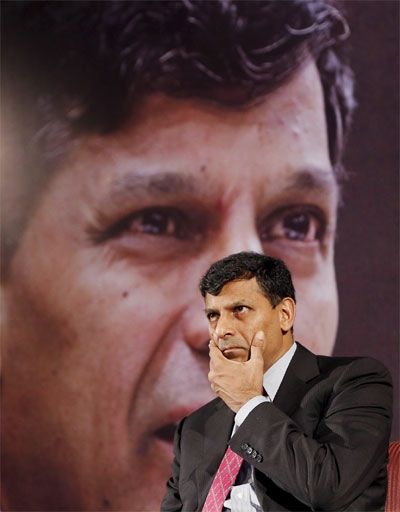'Lower rates are only part of the solution and sometimes not the right solution at all.'
 Reserve Bank of India Governor Raghuram Rajan says his efforts to clean up public sector banks’ balance sheets may create “some real pain now, but will lead to enormous gain down the line”. Speaking to Shekhar Gupta on NDTV, Rajan also said the markets are being swayed by short-term worries, leading to the current volatility. Excerpts:
Reserve Bank of India Governor Raghuram Rajan says his efforts to clean up public sector banks’ balance sheets may create “some real pain now, but will lead to enormous gain down the line”. Speaking to Shekhar Gupta on NDTV, Rajan also said the markets are being swayed by short-term worries, leading to the current volatility. Excerpts:
On stock market volatility
Markets don’t really know what the right level of fundamentals is, so they’re trying to find a level. Every time there’s news which can cause some worries, there is volatility.
Today, it’s all about what’s happening in China, what’s happening with the oil price; tomorrow, it could be something else. I think until we have more stability, partly as monetary policy becomes more normal, we may have this volatility.
On pressure for rate cuts
Everybody thinks there’s an easy win. Even in India, we have constant pressure to cut rates. But, lower rates are only part of the solution and sometimes not the right solution at all.
A lot of times, it is about creating the environment for sustainable investment, which means convincing people that tax laws are appropriate, that government action will come speedily and on time, and that there will be consumer demand. All these things are sometimes only peripheral to monetary policy.
On ticking off the rich
This is not about big business, this is not about successful businessmen, and this is not a Robin Hood issue.
This is an issue about the wrongdoers within the community who have raised the cost of borrowing for everybody.
When you flaunt your yacht and your massive birthday bashes even while owing the system a lot of money, it does seem to suggest to the public that ‘I don’t care’. I think that is the wrong message to send. If you are in trouble, you should show that you care by cutting down expenses and not flaunting in public.
On cleaning up banks
We are in the process of cleaning up the banks. We have spent quite some time giving them the powers to take actions. And now that they have those powers, they have a lot of flexibility on dealing with loans. We’re telling them to put the asset back on track.
But to do that, you might have to put new managements, you might have to write down the debt a little bit so as to give the entity space to grow. Which means you have to recognise it as a non-performing asset. We have had enough band-aids for a long time. We have had this process of extend and pretend. You need to take the real pain now. But it will create enormous gain down the line.
Photograph: Anindito Mukherjee/Reuters










